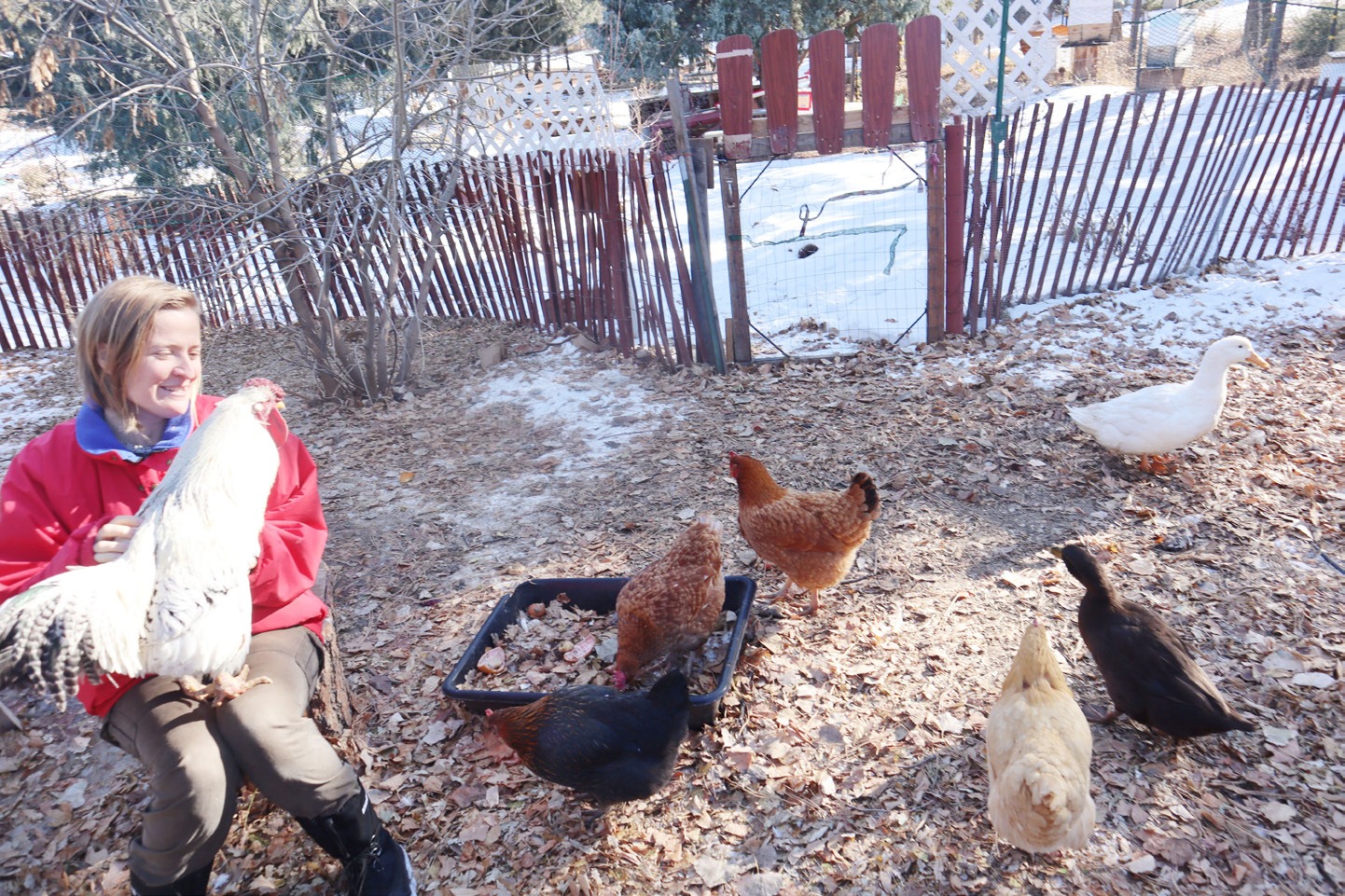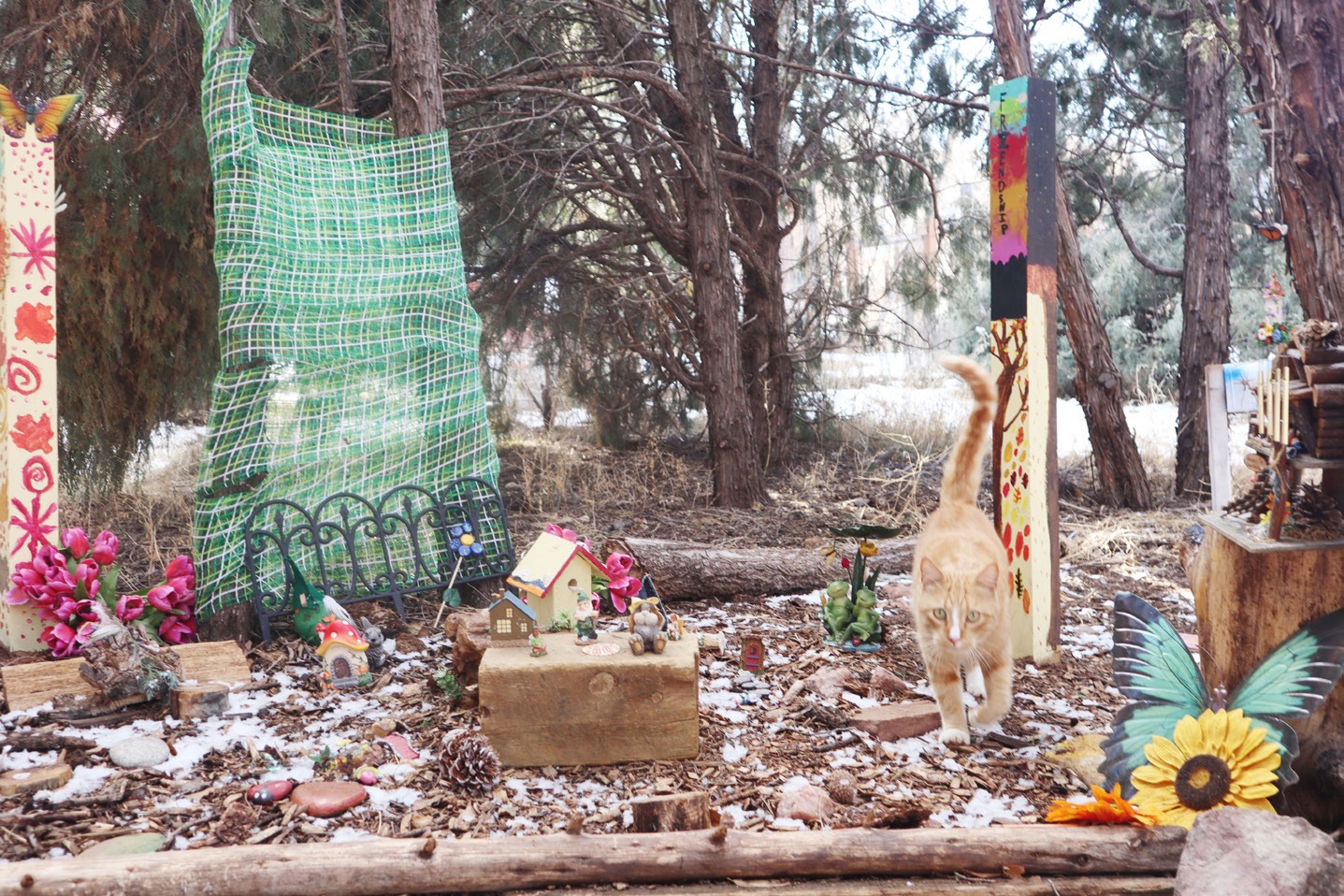Flying Pig Farm in Manitou Springs has received substantial grant funding to support its mission of bringing farm and local food education to schools in the Manitou Springs area and beyond.
In late October, U.S. Department of Agriculture officials, along with Manitou Springs Mayor John Graham, visited the rustic Flying Pig Farm during Farm to School Month. They observed kindergarten through fourth-grade students learning about regional food and farming practices made possible through USDA funding.
“Farm to school represents one of the many ways the administration invests in America to support local school food systems,” USDA Food and Nutrition Senior Policy Advisor Alberto Gonzales Jr. said.
“I’m excited to see how the grants are strengthening communities in Colorado,” Gonzales added during his October visit.
In July, Flying Pig received the Patrick Leahy Farm to School Program Implementation Grant, totaling $96,057 to be distributed over two years, supporting its educational outreach in Manitou and Colorado Springs public schools.
According to a USDA spokesperson, “Flying Pig Farm was selected through a rigorous panel review process in which applications are scored according to specific criteria. They were selected because their project proposal aligns with the goals of the USDA farm to school grant program and they have the capacity to implement the project, among other factors. The grant supports the organization’s proposal to expand current educational programming to reach more students in the Pikes Peak region, primarily to students in Manitou Springs School District 14 and Colorado Springs School District 11.”

“We know that when kids are involved in growing food and learning how to prepare it, they are much more likely to enjoy and choose fruits and vegetables going forward,” said Barak Ben-Amots, Executive Director of Flying Pig Farms.
“Our opportunity to build loving relationships with the land at Flying Pig has not only transformed my life but also touched the lives of over a thousand local children. The farm has flourished with biodiversity and joy over the last decade, and the promise of the next decade is more beauty, more life, and more learning for all of us,” Ben-Amots continued.
The farm itself looks like something out of a fairytale. Chickens and ducks scurried through snowy patches, conversing in their secret language of clucks and coos. Flying Pig’s curious and personality-filled goats watched intently as Flying Pig Board Member Ruthie Markwardt guided this reporter around the property.
“So, most of what we do here is education – farm-to-school education,” Markwardt explained.
Flying Pig works actively with local school districts 14, 11, 2, and 20 and hopes to expand its educational reach across the region. The farm also partners with soldiers at Fort Carson and homeschooled students.

“We offer a wide range of programs – from field trips where an entire grade visits for a field day to small social-emotional learning groups with just two or three students at a time. For any group that comes, we expose them to the full cycle of food: planting seeds, tending plants, harvesting, saving seeds, and, of course, cooking – which kids love. When students are involved in growing food, they’re much more likely to try and enjoy it,” Markwardt said.
Flying Pig is home to a “sanctuary-ed” flock of chickens and ducks – rescued birds who will live out their lives on the farm. The goats, brought to Flying Pig in 2016, are milked for cheese-making. Wild turkeys and mule deer from the surrounding forests also visit the farm, adding to its vibrant ecosystem.
Both domesticated and wild animals play vital roles in Flying Pig’s educational efforts. Beyond teaching farm practices, the animals help students develop emotional skills not typically addressed in standard school curricula.
“We try to focus on things kids don’t learn in school. The animals are wonderful for teaching emotional regulation and social-emotional skills—lessons that are harder to teach in a traditional classroom environment,” Markwardt said.
On another part of the property sits the community garden, fruit tree orchard, and earth oven. Cooking with regional foods grown on-site highlights a central part of Flying Pig’s mission: giving students a hands-on farm-to-table experience.
Markwardt noted that the grant funding will help bring tasting experiences directly into school cafeterias – a program aimed at expanding Flying Pig’s educational outreach.
“Our goal is to reach about 2,000 students each year. The grant allows us to test recipes with some of our high school interns and create outreach materials for school cafeterias. Students will get to taste local products like Rocky Ford watermelon and Pueblo chiles,” Markwardt said.
While securing grant funding is always cause for celebration, the true excitement lies in the farm’s ability to help more students learn about farming, the planet and essential skills that extend beyond academics.
“The impact of what we do is far-reaching, especially for students who don’t often find success in the classroom. Many students are told they’re waiting for a future time when they can be useful to the world. But when they come here and contribute to farm work, they can feel their value right now,” Markwardt said.
“We know that kids who spend more time outside, engage in physical activity, and connect with nature are more confident, less anxious, and better able to focus when they return to the classroom. We’re striving to provide a holistic experience that helps them succeed in many areas of life.”

